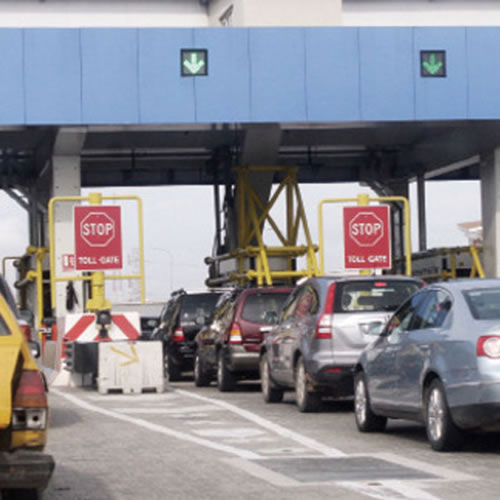Effective management of any road networks requires that budgets are at least sufficient to keep the road assets in stable condition over the long term, but this is not the case with Nigerian roads. Nigeria’s problem in road management is that there is no direct linkage between revenue and expenditure, our mechanism of funding is that road users generally do not perceive any price for road use. As a result, there tends to be bias in the way that roads are managed. Since road users do not pay directly for roads, they are not encouraged to choose whether and how to make a journey. The Highway Planning and Design Department of the Works ministry are doing an excellent job, but the lack of a firm link between revenue and expenditure increases pressures on them to manage the resources at their disposal efficiently. In many countries, road users pay taxes and road user charges, the proceeds from which are treated as general revenue. Roads are funded through budget allocations determined as part of the annual government budgetary process. These allocations bear little relationship to the levels of funding that road users actually contribute to revenue or to the underlying needs of the road network, measured in terms of economic criteria. Thus, roads are often treated as a “common good” and are funded like a social service
Nigeria’s large road network should be an added advantage and a haven to generate revenue for the country. The way forward is by allowing for charging road users for the costs that they impose both on the road administration, and on other users in terms of congestion and other externalities and thereby raise revenues for government and the intending investors. However, effective financing of Nigeria’s roads needs to satisfy a number of objectives: (1) provision of a secure source of funding to be used for road management, availability of which is certain and reliable; (2) independence from political interference on spending decisions, and what road to construct which should be based only on needs, as assessed by using economic or other pre-defined criteria, and in accordance with the requirements determined by the Highway Planning and Design Department of the Ministry of Works; and (3) Establishment of a direct link between revenue contributions and spending on road management; with prices paid by users reflecting the level of service provided by the government.
Involvement of road users and other stakeholders in the road network has been found, in some countries, to provide the key to introducing effective and efficient road financing measures, particularly since governments are usually reluctant to raise taxes and user charges. There is need for Nigeria to seriously consider involving road users in how to manage the road. If common man are made as stakeholders in the network, with vested interests, they may be willing to pay more for roads, but only if the money is seen to be spent on maintaining and improving the transportation network. In return, road users will expect the work to be done efficiently and are likely to demand value-for-money. As such, the involvement of stakeholders in the road management process can create a surrogate market discipline, which encourages the road administration to use resources efficiently and discourages it from abusing its monopoly power. Nigeria need to move away from the traditional system, apart from road users contributing to general revenue, road funding can be put on a similar basis to other utilities, such as telecommunications(similar to the operation of MTN, GLO, etc), electricity and water supply, where there is a direct link between users and suppliers. Such an approach encourages effectiveness and efficiency in the organisation and management of the supply. Thus, our road pricing will be considered as a “utility charge”. Where road use charges contribute to general revenues, a defined portion of the revenues that relate to the cost of the service provision should be made available to the roads’ sub-sector. Some school of thought argues that corruption will erode this system. The way around is by creating a special accounts, into which the proceeds from the road tariff can be deposited, which can only be accessed by the roads’ administration. This prevents funds collected in this manner from being spent on other public programmes. Given the above objectives and background, the key issues that need to be addressed in establishing road user charges are as follows: (1) determine the cost and cost breakdown in a form suitable for a typical Nigeria’s ideal; (2) decide what the road user charges should pay for (i.e. to define the amount of money to be raised by user charges); (3) determine the amount of money that the different categories of road users (e.g. okadas, private cars, buses and trucks) should be charged; and (4) select the appropriate charging instruments (e.g. licence fees, fuel levies, transit fees, etc.).
Nigeria is going back to the tolling system, it is a welcome development, however, it is important to realise that there is a limit to which roads may be financed through tolling. Physical restrictions on some parts of the network will make tolling difficult. In urban areas, such restrictions coupled with unwanted external impacts on other parts of congested urban networks, make such solutions difficult to implement. In other areas, where traffic volumes are low, the financial case for toll roads becomes more difficult. Professionally speaking, volumes of less than 4000 vehicles per day cannot be commercially warranted for toll road development. The implication is that there will be a limit to how the road can be developed and funded in this way. As a consequence, the majority of the strategic road network will remain funded through direct government budgetary processes unless other forms of user-pay approaches can be developed (Shaw,2005; www-dbsa.org). What are the other approaches Nigeria could adopt? Public- Private Partnership (PPP) programme is the only way out of Nigeria roads of death. I presumed that the profit orientation of the private concessionaire will induce maximum asset management and operational efficiency if long-term profits are the sincere concern of investors and not some get-rich mentality.
Weight-Distance Charges is one of the ways to go, by using to its maximum potential various workable Public- Private Partnership (PPP) programme and schemes. Nigeria need to introduced “weight-distance” charges in which all diesel vehicles buy a license graduated according to axle load configuration and gross vehicle weight. The charges are administered through an odometer or other certified distance meter. This is a technically advanced mechanism suitable to the Nigeria scenario. In addition, Parking fees and Urban Pricing; these system of revenue generation are a realistic option in urban areas, but the revenues obtained are relatively small in comparison with national expenditure on roads. Enforcement is also a critical issue and evasion of payment is high. This can often result in revenues from parking charges being less than the costs of operation and maintenance. However, its implementation in Portharcourt, Abuja, Lagos and all cities with vehicle cluster more than 3000 per city could implement this system successfully. Also, there is no practical mechanism currently available for charging urban road users specifically for the costs they impose and it would be inappropriate to charge non-urban road user for this very high cost of congestion. The cost of urban congestion and particularly congestion in large cities is a major issue to ensure that it is the urban road users who pay for the costs they impose.




